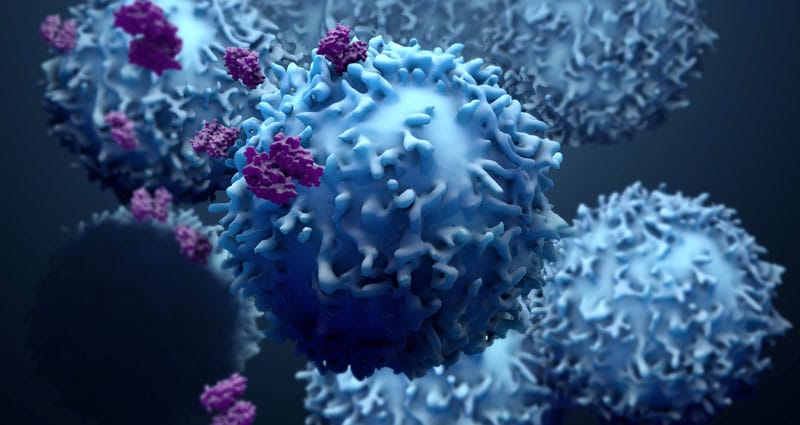Your immune system is a powerful force—and it can defend you against cancer.
The immune system can keep some cancers from forming or growing quickly by destroying cancer cells. The problem, however, is that these cells can use a variety of methods to evade or hinder your immune cells, allowing cancer to grow and spread. When your immune system has a hard time keeping up, a type of cancer treatment called immunotherapy can enhance its anti-cancer abilities.
Defining Immunotherapy
Treatments that use natural or lab-created living substances to treat cancer are known as biologic therapies. Immunotherapy falls into this category, as do certain types of targeted therapy, which act against proteins that regulate cancer cells’ functions.
The goal of immunotherapy is to help your immune system do its job as effectively as possible. There’s more than one way to achieve this goal. Some types of immunotherapy stimulate your immune cells’ ability to locate and kill cancer cells. Other types rely on lab-made substances to help the immune system pursue cancer cells.
Many Ways to Help the Immune System
Immunotherapy takes several forms. One type, immune checkpoint inhibitors, works by blocking one of the tools the immune system uses for self-regulation. Known as checkpoints, these proteins help keep certain immune cells from overreacting to foreign substances they encounter. Immune checkpoint inhibitors keep the checkpoints from doing their job, leaving immune cells free to unleash their full force against cancer.
Other types of immunotherapy include:
- Cancer vaccines. Different from vaccines to prevent infection, vaccines to treat cancer are designed to prompt the immune system to combat the disease.
- Chimeric antigen receptor T-cell therapy. Also known as CAR T-cell therapy, this treatment enhances the ability of your T cells—a type of immune cell—to find and kill cancer cells.
- Immunomodulators. These treatments stimulate certain parts of the immune system or the system as a whole to act against cancer.
- Monoclonal antibodies. Some of these lab-created substances attack specific areas of cancer cells. Other types of monoclonal antibodies act like flags, planting themselves on cancer cells so immune cells can find and destroy them.
Types of Cancer That Immunotherapy Can Treat
Whether you’re a candidate for immunotherapy depends on many factors, including the type of cancer you have, its stage and your overall treatment plan. You may receive immunotherapy by itself or in conjunction with other treatments.
Immunotherapy isn’t approved to treat all cancers. It can be an effective—and, occasionally, curative—treatment for some patients. However, immunotherapy requires patience, as it can take a long time to produce results.
Immunotherapy is a treatment option for several cancers, including two—stomach cancer and lung cancer—that share November as their awareness month. Immunotherapy can also treat leukemia, lymphoma, breast cancer, colorectal cancer, kidney cancer and melanoma, among others.
A COVID-19 Connection
Immunotherapy has applications beyond cancer. One is treating COVID-19.
For certain patients with COVID-19, including those at risk of developing severe symptoms, monoclonal antibody treatment can be beneficial. Delivered via infusion, this treatment gives the body the tools—antibodies—to fight the coronavirus quickly and can limit how much of it circulates in the body. That’s important because the body may be slow to develop its own antibodies to the virus.




